I couldn’t resist. Earlier this year, while on my way to the Galapagos, I stayed over in mainland Ecuador for a few days to photograph hummingbirds. Hummers have been worked a lot, but they are magnificent little birds, and, since I was in a location with many species, why not spend a few days photographing? As I said, I couldn’t resist. Here’s a short slideshow.
For hummingbirds on perches: Nikon D800E in 1.2 crop mode, 500mm lens with an extension tube (for closer minimum focus), plus a bracket-mounted flash with Better Beamer flash extender attached, flash output between -1 and -2 fill. Matrix metering, aperture priority (so shutter speeds were between 1/60 and 1/250 sec.), ISO 1000 (low light where I was photographing), f/11.
For hummingbirds in flight: Nikon D4 with 80-400mm lens, manual exposure, ISO 400, 1/250 sec. at f/11. In order to freeze the wing movement, I needed to light the entire scene (no fill flash here) using very short flash durations. This is actually easy to get: set a regular flash on manual output at about 1/16 power and position the flash relatively close to the subject. I used four flashes: one on-camera (set at an even lower power output), two on light stands aimed from either side toward where the birds would fly into a feeder, and one on another light stand and aimed at an artificial background (a print of out-of-focus vegetation). To determine flash position, and consequently the f/stop to use, take a shot and take a look at the camera’s LCD. The on-camera flash triggered all the other flash units; in other words, the flashes were simple slave units. Since I was the only person working the area my flashes did not interfere with any other setup, otherwise I might have needed radio flash triggers which I don’t own.
I might note that most Nikon flashes can be set in an SU-4 mode, which allows them to act as basic optical slaves with any brand of camera. Slave flashes certainly don’t need to be current models. I have a Nikon SB-80DX (discontinued 10 years ago) which I picked up brand new in the box about a year ago for $25.

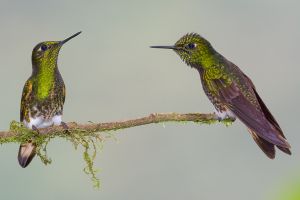
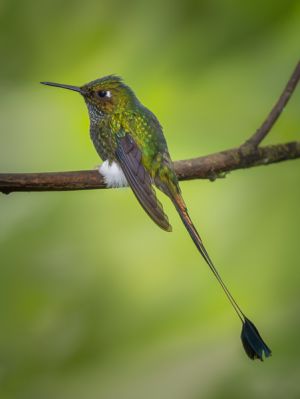
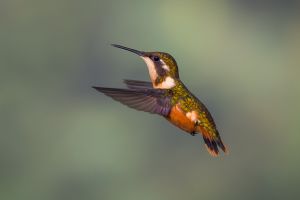
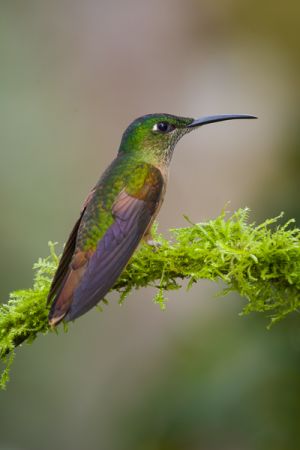
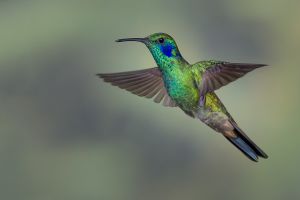
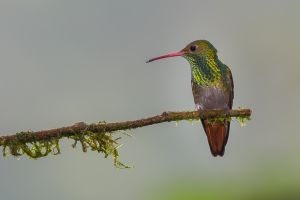
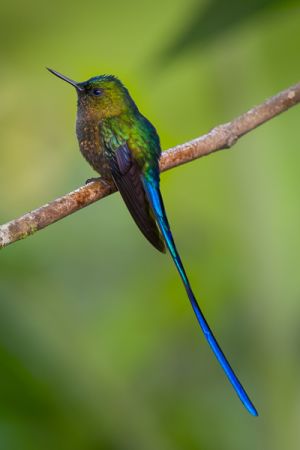
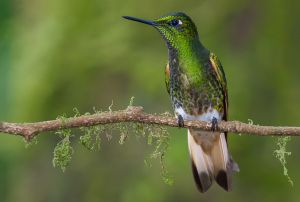
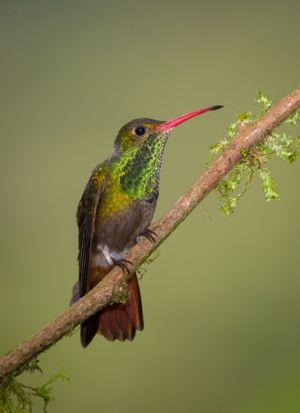
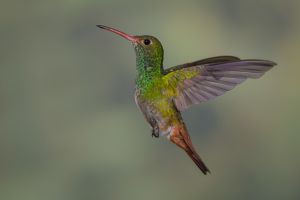
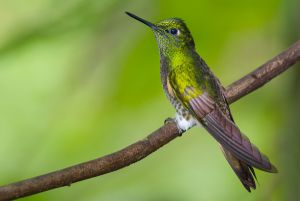
2 Comments
Thank you for a great tutorial on hummingbird photography. Really useful idea – background using a print of out-of-focus vegetation.
Great images John..many thanks for sharing your techniques.
Best Regards,
Ash